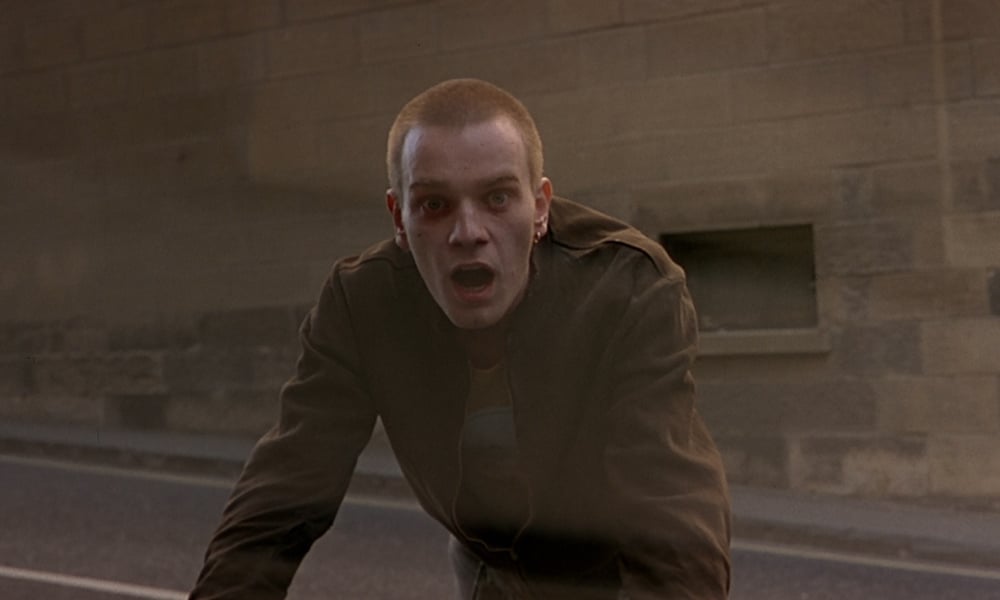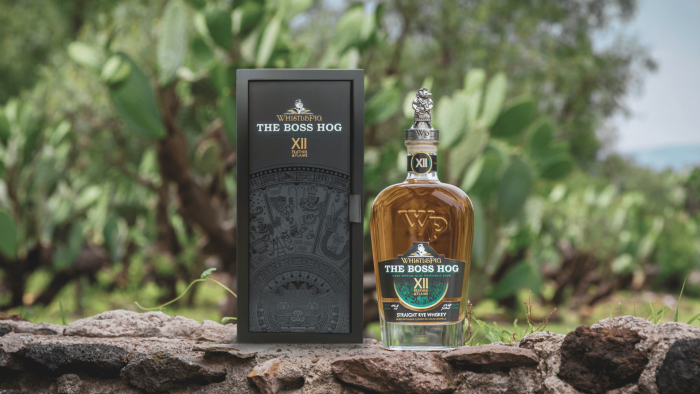Music and movies are an obvious pairing. Both have a ton of power on their own, and when they’re used together properly, you end up with some of the most affecting memories a person carries with them. We’ve already covered what movie soundtracks keep us riveted and give us chills, so we thought we’d give some attention to moments that are just as powerful. Here are the 10 times the perfect song was used in a movie scene.
Cat People | Inglourious Basterds
Obviously, Tarantino has dozens of great music moments in his career and we love them all equally. But the reason we picked this one is because of how much it contributes to Shosanna’s character arc. When we first meet her, she’s a young Jew hiding out with her family, terrified of what Nazi occupation means for them. By the time this scene comes on, she’s reversed her fortunes by manipulating Nazis at every level and is moments away from her revenge. This is Shosanna prepping for a major wartime offensive, which both the music and lyrics of “Cat People” helps convey. She putting out the fire of the Nazi High Command with her own form of gasoline.
Don’t Stop Me Now | Shaun of the Dead
Edgar Wright’s use of music has always been something enviable, especially when it comes to comedy. He knows exactly how to make a song build on the comedy inherent in a situation, or to bring out comedy in situations where there wasn’t any to begin with. Case in point, when Shaun, his ex-girlfriend, and his best friend try to beat his local’s landlord to redeath with pool cues, there’s no humor inside that description. But do it when the landlord is a zombie and the soundtrack is “Don’t Stop Me Now,” you have one of the greatest scenes in comedy history. There’s no other song that’d work as well as this one, which is exactly why it’s so high ranking for us.
Man of Constant Sorrow | O Brother Where Art Thou?
What starts as a con Everett and his compatriots pull on a blind radio station owner turns into the defining moment of the group’s homecoming. The song wasn’t, as we originally thought, written for the movie. It was first performed in 1913 by Dick Burnett, but it’s a testament to the quality of the song and the authentic feel of O Brother Where Art Thou? that it fits so well into the soundtrack. In the movie, the American South was experiencing a revival in its enthusiasm for folk music in what can be interpreted as a sort of redemption for its problematic past. For our small group of hapless heroes, it’s similarly redeeming. After their performance, they’re forgiven for past crimes, are allowed to rejoin whatever family they have, and presumably have a respectable career ahead of them as a folk band. Everything about their two performances feels optimistic, for them and for the audience.
Fortunate Son | Forrest Gump
Other than the Vietnam War itself, Forrest Gump has to be the first time Creedence Clearwater Revival was played as a bunch of Hueys flew over rice paddies and U.S. military bases. There have been other movies that try something very similar, but it works best in Forrest Gump. The scene perfectly captures the decade, the attitude of the soldiers, the controversial nature of the war, and the culture the men were missing but still directly affecting. Don’t let the below average knockoffs turn the scene into a cliche.
What a Wonderful World | Good Morning, Vietnam
We’ll stick with a Vietnam theme for right now. Putting “What a Wonderful World” under various scenes of the Vietnam War, both urban and rural, is an excellent idea. It almost comes off as existentially sarcastic, going from fairly happy scenes at the beginning and getting more and more depressing. Smiling faces and laughter are slowly replaced with death, destruction, and depression, tracing the general plot arc of this movie along with it. Adrian Cronauer comes to Vietnam with fun ideas and an uplifting message, but is incrementally confronted with the realities of what would be one of America’s most complicated conflicts.
I’m Shipping Up to Boston (Both Times) | The Departed
Regardless of your feelings on The Dropkick Murphys as a band, you have to admit “I’m Shipping Up to Boston” is the perfect song for Billy Costigan’s time in jail and Costello’s gang’s ride to their drug pickup. Both are emotionally charged, aggressive moments with deep roots in Boston’s Irish past. If that’s not a good way to also describe the song too, we don’t really have an alternative.
There’s also a crucial difference between the two uses and is the main reason it doesn’t feel repetitive or redundant. The song serves separate functions for the scenes it’s in. In the first one, the song helps set the scene. It’s more about enhancing the sense of location. In the second one, it’s about establishing the mood. It comes at the point where everyone involved is most stressed out. Costello’s rats are wearing him thin, Costigan’s been a half-second away from full on panic attacks this whole time, and Sullivan is questioning his standing with Costello for the first time ever. In the second scene, the song plays all that up. End
Raglan Road | In Bruges
Martin McDonagh doesn’t use traditional Irish folk music in his movies very often, but when he does, he knows exactly what to do with it. “Raglan Road” is a naturally mournful song and In Bruges is far from a happy movie, making them an easy pairing. The song itself is about a man who never quite had the life he wanted, which feels like it’s exactly how someone could describe Ken. He ended up as a hitman, but the movie makes it abundantly clear that it’s not where he finds fulfillment. He’s far more interested in the history and religion of Bruges than the job at hand. So when this scene finally comes up, you’re watching a man forfeit his own redemption and remaining potential to try and rectify a small bit of injustice in the world.
Angel | Snatch
Guy Ritchie’s another British director whose song choice has always been impeccable and this scene from Snatch is no exception. Turkish and Mickey are both staring down the barrel of personal ruin and experiencing the aftermath of losing something extremely important to them. Turkish’s arcade was just wrecked beyond repair and Mickey’s mother was incinerated in an attack by one of Brick Top’s arsonists. While both are happening, “Angel” by Massive Attack is playing underneath, conveying the sort of desperation they both must be feeling, along with a visceral, almost impotent anger. Both are moments that stick with you, especially because the mix of emotions is something you’ll inevitably feel, even if the stakes aren’t as high for you.
Lust For Life | Trainspotting
Few movies have established the feel of their world as quickly as Trainspotting, but that’s exactly why this sequence is so good. The energetic chaos of “Lust for Life” is the perfect soundtrack for Renton’s counter-culture rant about healthy choices vs. enjoying your life. It pounds from beat to beat the same way Renton and his friends live for each high, and the song itself talks mainly about the same sort of ideas. For Renton and the song, life is about taking full advantage of the present moment, even if it comes at the horrific cost of your future.
Tiny Dancer | Almost Famous
“Tiny Dancer” has some melancholy to it. You might not fully understand the lyrics, but you definitely get the sense that the song doesn’t tell a completely happy story. Despite that, it’s a song that absolutely brings people together, which is exactly what you get in Almost Famous. In the moment, everyone on the bus is lost in their own small worlds, likely fixated on their own bits of melancholy. But, just like in the real world, as soon as one person starts singing “Tiny Dancer,” everyone has to. What you get after that is an almost immediate mood change and some significant catharsis. All at the same time, everyone on the bus remembers why they’re there and why they stick around.




